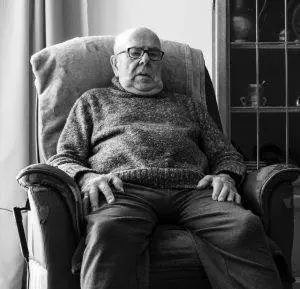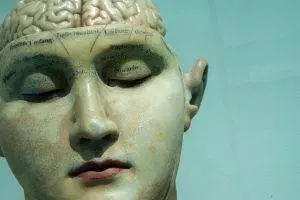By Qineng Tan, L.Ac., Ph.D & Xiaomei Cai, L.Ac, Ph.D.

Problems with thinking clearly or remembering things? Feeling disoriented and confused? These may be signs of Alzheimer’s disease or early onset dementia. Alzeimers is a progressive brain disorder that can cause memory loss and cognitive problems. TCM treatment with herbs and acupuncture for Alzheimer’s disease can have a positive effect on brain activity and help relieve symptoms of vascular dementia.
Dementia is a general term that refers to changes in the brain that impact a person’s ability to focus, think in an organized way, learn new things, and keep track of their normal routine. Over 5 million adults are affected with dementia, 60-80% of them due to Alzeimer’s. Most people who develop Alzheimer’s do so when they are over 65, but 5-6% of all Alzheimer’s patients develop young-onset Alzheimer’s or early onset Alzheimer’s between the ages of 30 and 60. Alzheimer’s disease is one of the primary causes of dementia; the other common types of dementia are Lewy Body dementia (LBD) and vascular dementia.
Increased forgetfulness and changes in cognitive function are not just normal parts of aging. The first signs of dementia occur due to changes in brain cell function and initially affect the part of the brain that learns new information and remembers it. While medical science has not conclusively discovered what exactly causes Alzheimer’s dementia, it is believed to be related to protein deposits called “plaques” and “tangles” developing in the brain, disrupting the communication between the brain cells and damaging nerves. Lewy bodies, are also a type of protein that can build up in the brain.
Typical treatment for Alzheimer’s involves the use of medications that affect brain chemistry, slowing down the effects of cell damage in the brain. Acupuncture treatment and the use of specific Chinese herb formulae can work as an effective and safe adjunctive treatment, helping to stimulate brain activity, improve blood circulation, and reduce inflammation in the brain to help improve the cognitive function that can be lost to Alzheimer’s and dementia.
Top 10 Early Signs of Dementia

It can be difficult for a person who is beginning to show signs of Alzheimer’s disease to recognize it themselves; often, their loved ones will begin to notice changes in their behavior first. In addition to the more obvious forgetfulness and disorientation of dementia, people may notice more subtle changes in a person’s personality and behavior.
Symptoms of Alzheimer’s disease include:
-
Forgetting important things, like dates or appointments (more than just occasionally)
-
Having to ask the same question repeatedly because you can’t retain information
-
Trouble completing basic tasks that require following instructions
-
Losing track of where you are or what day or time it is, getting lost
-
Losing items, forgetting where you put something
-
Having trouble finding the right words or carrying on a conversation
-
Changes in vision or spatial perception
-
Changes in mood, emotions: anger, aggression, feeling suspicious towards others
-
Avoiding social situations
-
Progressively more difficult to walk, speak, or swallow
Signs of dementia in women can look different from signs of dementia in men. While it is often noted that people with dementia may become more irritable and take an attitude of blaming others for their forgetfulness, sometimes it may be the opposite. A person may seem more docile and easy-going. You might notice that a person is driving either more slowly and cautiously than they used to, or perhaps making more erratic decisions and moves. Having difficulty hearing when there is a lot of ambient noise, and losing one’s sense of smell can also be signs of Alzheimer’s and dementia.
The symptoms of Alzheimer’s disease tend to progress over time, while signs of Lewy Body dementia (LBD) can change more dramatically from day to day. A person with LBD may, for example, recognize their relatives sometimes, and be confused and unresponsive on other days. Having trouble walking, risk of falling, acting out dreams while sleeping, and having a blank facial expression can also be signs of LBD, although they can also be signs of another neurological disorder, such as Parkinson’s disease.
Medical Treatment for Alzheimer’s Disease
Drug treatment for Alzheimer’s disease may help a person maintain their cognitive abilities and memory longer, although it can be difficult to determine just how much a particular medication for dementia is helping, as the effects are limited and can be hard to quantify.
Cholinesterase inhibitors slow the breakdown of brain chemicals involved in memory and thinking, which can help some people with Alzheimer’s manage these symptoms for a while. For other people, these medications (such as Donepezil and Galantamine) may not help much, and they can also cause side effects like nausea, vomiting, and diarrhea. Cholinesterase inhibitors cannot be taken by people who also suffer from arrhythmia, or irregular heartbeat conditions. No medications available currently actually work to repair or reverse the damage to the brain caused by Alzheimer’s disease. Some studies, as noted below, have actually seen better results in patients receiving TCM treatments over conventional medication therapies for dementia and Alzheimer’s.
How Can Acupuncture Help Alzheimer’s Disease?

In TCM, we consider that many diseases are caused by a buildup of what we call “phlegm” in the organ systems of the body. The protein deposits in the brain referred to as “plaques” and “tangles” that seem to be the cause of dementia in older adults may be roughly analogous to the TCM concept of phlegm. Phlegm causes obstructions that block the free flow of Qi and blood through the body, causing breakdown in proper communication and cooperation between systems. There are records going back for hundreds of years of TCM herbal formulations being used to treat dementia by helping to get rid of pathogenic phlegm that blocks the meridians, or energy channels of the body.
According to TCM theory, the brain and the kidneys are closely related; the kidneys nourish the brain. If there is weakness or deficiency of Qi in the kidneys, it can lead to symptoms like dizziness, confusion, amnesia and memory problems. TCM treatment for dementia related to Alzheimer’s disease and Lewy Body dementia, will focus on strengthening the kidneys and clearing phlegm from the body.
Acupuncture treatment can have a positive effect on neurotransmitters and neurochemical activity, helping to alleviate a variety of neurological and mental health disorders. Current research is helping to show that stimulating specific pressure points can activate parts of the brain in a way that may reduce the cognitive and memory-related symptoms of dementia.
A study was done to determine if using the traditional “Four Gates” acupuncture points increased brain activity and improved cognitive function. The testing showed that patients who received acupuncture treatment in these points experienced significant changes in the cognitive-related parts of the brain versus patients who were given “sham” acupuncture.
A recent review of several studies showed that acupuncture treatment for Alzheimer’s can improve memory and cognitive function.
A review of 12 studies involving the use of acupuncture and TCM herbs to treat Alzheimer’s showed improvement in symptoms that was more effective than conventional drug treatment.
Acupuncture Near Me for Alzheimer’s in Santa Monica, West Los Angeles
It can be painful to watch a loved one struggling with dementia caused by Alzheimer’s or some other progressive neurological disease. It is best to initiate treatment for dementia as soon as it becomes apparent, so that we can help to limit the progress of cognitive decline. TCM provides a holistic way to treat each individual so that they can continue to live a full, active life. At Art of Wellness, we have over 30 years of experience helping patients with neurological conditions of all kinds.
*This article is for education from the perspective of Traditional Chinese Medicine only. The education provided by this article is not approved by FDA to diagnose, prevent, treat and cure human diseases. It should not stop you from consulting with your physician for your medical conditions. Traditional Chinese Medicine is based on Qi, which is an invisible force that usually cannot be observed by modern science. Because science focuses on testing ideas about the natural world with evidence obtained through observation, these aspects of acupuncture can’t be studied by science. Therefore acupuncture and Chinese herbs are often not supported by double-blind, randomized trials, and they are considered alternative medicine therapies in the United States.
